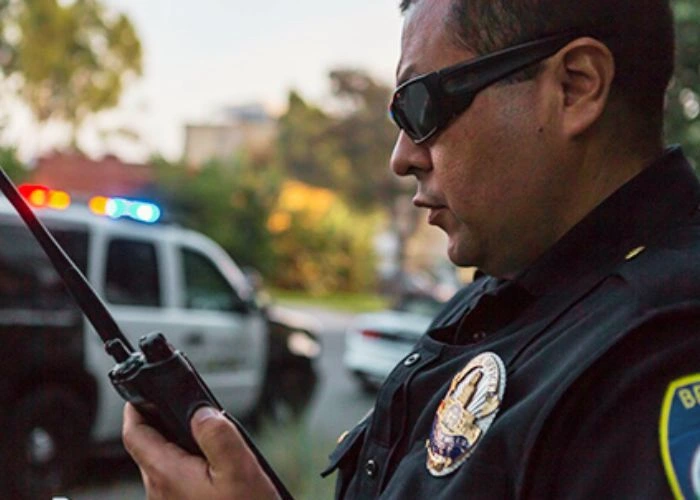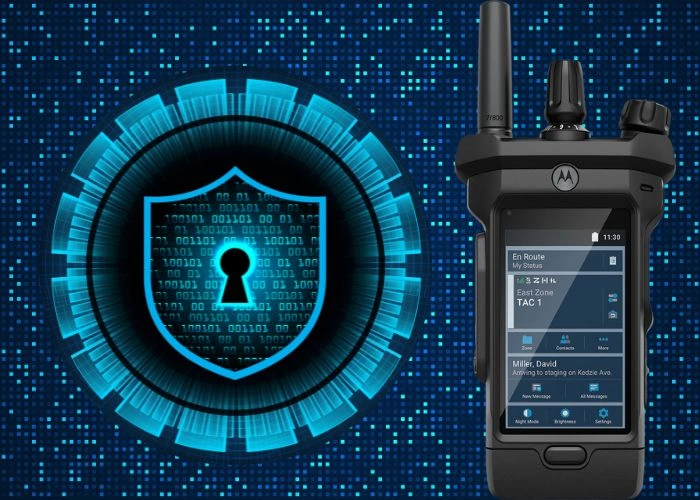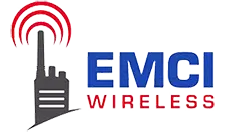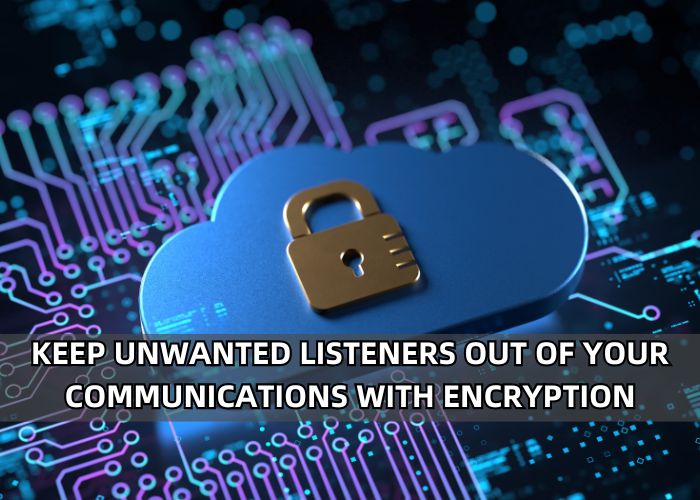EMCI Wireless has ensured secure chats for over 48 years, specializing in commercial and public safety communication. With growing digital threats, encryption — transforming messages into secret codes — is more critical than ever. It keeps unwanted listeners out, ensuring that only the right eyes and ears understand the conversation. As a leader in communication solutions in Central and South Florida, EMCI is dedicated to keeping your communications safe and sound, making encryption a key player in your security strategy.
Understanding Encryption in Two-Way Communications
Encryption in two-way communications is like turning your messages into secret codes that only the right people can understand. It scrambles your words so that if someone else tries to listen, they won’t make sense of anything.
Two main types help keep public safety radios safe: AES (Advanced Encryption Standard) and DES (Data Encryption Standard).
AES (Advanced Encryption Standard)
AES is the preferred encryption type for public safety radios due to its robust security features. It’s known for being significantly faster and more secure than its predecessor, DES. AES employs a lengthy 256-bit key, making it exceedingly difficult for unauthorized individuals to crack. This level of security ensures that sensitive communications, especially those crucial to public safety operations, remain confidential and protected from potential cyber threats.
DES (Data Encryption Standard)
Initially introduced as the pioneering encryption standard, DES is now largely considered obsolete due to advancements in decryption technologies. It operates with a 56-bit key size, which is relatively easy to breach with today’s sophisticated hacking tools. Despite its historical significance in the evolution of digital encryption, DES’s slower processing speed and vulnerability to security breaches have led to its decline in favor among organizations that prioritize communication security.
Simpler Encryption for Business Radios
Simpler encryption methods are employed for business-class radios, which range from lower to mid-tier. These systems use a 32-bit key size, balancing adequate security and operational efficiency for less critical communications. While not as impervious as AES, this level of encryption provides sufficient protection for everyday business transactions and conversations, safeguarding them from casual eavesdropping without needing the more complex and resource-intensive AES system.
The Need for Encryption
Encryption is a must, especially in the public safety sector, where the stakes are high. Imagine a scenario where emergency responders communicate over unencrypted channels about a sensitive operation, such as a high-risk rescue mission. Without encryption, anyone with basic equipment could intercept these communications, potentially leading to leaked operational details, endangering lives, and compromising the mission.
Unencrypted communications pose significant risks, including eavesdropping and unauthorized access, which could result in the dissemination of confidential information, operational plans, or personal data of those involved. This lack of security can lead to catastrophic outcomes, including manipulating sensitive operations, putting public safety personnel and civilians at risk.
Encryption acts as a shield, ensuring that sensitive information remains confidential, maintaining the integrity of operations, and protecting against malicious actors who might exploit unprotected communications to disrupt public safety efforts.

Benefits of Encryption for Public Safety and Commercial Organizations
In both public safety and commercial sectors, encryption plays a pivotal role in securing communications and ensuring that operations run smoothly and safely. Here’s how:
- Enhanced Operational Security and Safety for Personnel: Encryption ensures that sensitive communications about operations and personnel movements remain confidential. This protects against potential threats that could jeopardize the safety of individuals involved in critical missions or daily business operations.
- Protection of Sensitive and Personally Identifiable Information (PII): With encryption, personal details, operational plans, and sensitive information are shielded from unauthorized access. This is crucial in maintaining the privacy and security of individuals and organizations alike, preventing identity theft and data breaches.
- Prevention Against Unauthorized Access and Potential Misuse of Communication Channels: Organizations can prevent malicious actors from intercepting messages by encrypting communication channels, ensuring that only authorized personnel can access and use these channels for their intended purposes. This reduces the risk of communication channels being used to disseminate false information or coordinate unauthorized activities.
Through these benefits, encryption safeguards the integrity of operations and builds a foundation of trust and reliability within and across organizations.
Commercial and Public Safety Use Cases for Two-Way radio Encryption
- Security Services: Private security firms and personnel often rely on encrypted two-way radio communication to coordinate patrols, respond to incidents, and ensure the safety of clients and properties. Encrypted channels prevent unauthorized eavesdropping and protect sensitive security-related information.
- Event Management: Event organizers, such as concert promoters, festival coordinators, and sports venue managers, use encrypted two-way radios to communicate with staff, security personnel, and emergency responders during large-scale events. Encrypted communication helps maintain crowd control, address emergencies discreetly, and protect event attendees.
- Construction Companies: Construction crews and project managers use encrypted two-way radios to coordinate tasks, communicate critical safety information, and ensure efficient project management on job sites. Encrypted communication helps protect proprietary construction plans, equipment inventory, and sensitive project details from competitors or unauthorized parties.
- Transportation and Logistics: Trucking companies, shipping companies, and logistics providers utilize encrypted two-way radio communication to coordinate fleet operations, track shipments, and communicate with drivers and dispatchers securely. Encrypted channels help prevent cargo theft, ensure driver safety, and protect sensitive logistical information.
- Hospitality Industry: Hotels, resorts, and hospitality venues utilize encrypted two-way radios to facilitate communication between staff members, housekeeping teams, security personnel, and management staff. Encrypted channels ensure guest privacy, protect sensitive guest information, and enable seamless coordination of guest services.
- Retail Stores: Retail chains, supermarkets, and department stores use encrypted two-way radios to enable communication between store managers, security personnel, and floor staff. Encrypted channels help prevent shoplifting, address security concerns discreetly, and protect sensitive inventory information.
- Manufacturing Plants: Manufacturing facilities and industrial plants rely on encrypted two-way radio communication to coordinate production processes, ensure worker safety, and respond to emergencies promptly. Encrypted channels protect proprietary manufacturing techniques, trade secrets, and operational procedures.
- Healthcare Facilities: Hospitals, clinics, and medical facilities utilize encrypted two-way radios to facilitate communication between healthcare professionals, nursing staff, and support personnel. Encrypted channels help protect patient confidentiality, comply with HIPAA regulations, and ensure secure transmission of sensitive medical information.
- Educational Institutions: Schools, colleges, and universities deploy encrypted two-way radios to enable communication between faculty members, security personnel, and administrative staff. Encrypted channels help maintain campus security, address emergencies discreetly, and protect sensitive student information.
- Public Safety Agencies: Law enforcement agencies, fire departments, and emergency medical services utilize encrypted two-way radios to coordinate emergency response efforts, communicate securely during tactical operations, and protect sensitive law enforcement information from interception or tampering.
Implementing Encryption: Considerations and Challenges
When adopting encryption for communication systems, organizations must navigate several key considerations and challenges:
- Technical Complexity: Implementing encryption involves understanding the technical nuances of different encryption standards and selecting the one that best fits the organization’s needs. This can require significant expertise and resources.
- System Interoperability: Ensuring encrypted systems can communicate seamlessly with other systems, especially in multi-agency operations, is crucial. This requires careful planning and potentially adapting or upgrading existing infrastructure.
- Cost: Encryption can add significant costs, from acquiring the necessary technology to training personnel in its use. Organizations must balance the need for security with budget constraints.
- Regulatory Compliance: Depending on the sector, encrypted communications must comply with specific regulatory standards, necessitating a thorough understanding of these requirements during implementation.

Maximizing Public Safety with P25 Smart Radios: APX N70 and N50
The evolution of P25 Smart Radios, particularly the Motorola APX N70 and N50 models, represents a significant leap forward in advanced features such as encryption and communication technology for public safety and commercial organizations. These radios are designed with the needs of first responders in mind, providing rugged, reliable, and secure communication solutions that enhance operational efficiency and safety. Here’s a look at the benefits they offer:
APX N70: The Ultimate Communication Tool for First Responders
- The APX N70 offers ultra connectivity with P25 operation, ensuring seamless communication across various frequencies, modes, and protocols.
- Features a touchscreen for intuitive use, even in the most demanding situations, keeping responders focused and efficient.
- Equipped with hardware encryption algorithms for secure communications, plus the ability to update quickly with batch radio programming and management tools.
APX N50: Slim, Rugged, and Reliable for On-the-Go Communication
- The APX N50 provides reliable P25 operation in a sleek, portable design, perfect for mobile workers and public safety support staff.
- Ensures clear, loud audio in any environment, thanks to advanced microphones, exclusive speaker designs, and leading APX audio algorithms.
- Offers hardware encryption for secure communications, along with seamless connectivity to accessories and other devices via Bluetooth® or Wi-Fi.
Both models demonstrate the importance of smart, secure, and efficient communication tools in modern public safety and commercial operations, highlighting the critical role of advanced encryption in protecting sensitive information and ensuring operational integrity.
EMCI Wireless: Leading the Way in Secure Communications Solutions
EMCI Wireless is the premier Motorola Solutions Channel Partner at the forefront of secure communication solutions in Central and South Florida. With certifications such as a Certified Service Center and adherence to various Electronics Technician Association, International standards, EMCI Wireless showcases its unwavering commitment to excellence.
We excel in providing encrypted communication systems, offering tailored solutions that meet the specific needs of different industries. Our dedication to delivering secure, reliable, and efficient communication systems is unmatched, ensuring that every client receives the highest level of service and support.
Schedule a Free Consultation with EMCI Wireless to Discuss Your Two-Way Communication Encryption Requirements
Secure communication is not just an option; it’s a necessity. EMCI Wireless leads the way in providing state-of-the-art encrypted communication solutions tailored to the diverse needs of various industries.
Our expertise and commitment to delivering secure, reliable, and efficient systems make us the trusted partner for businesses across Central and South Florida. Ready to enhance your communication security?






